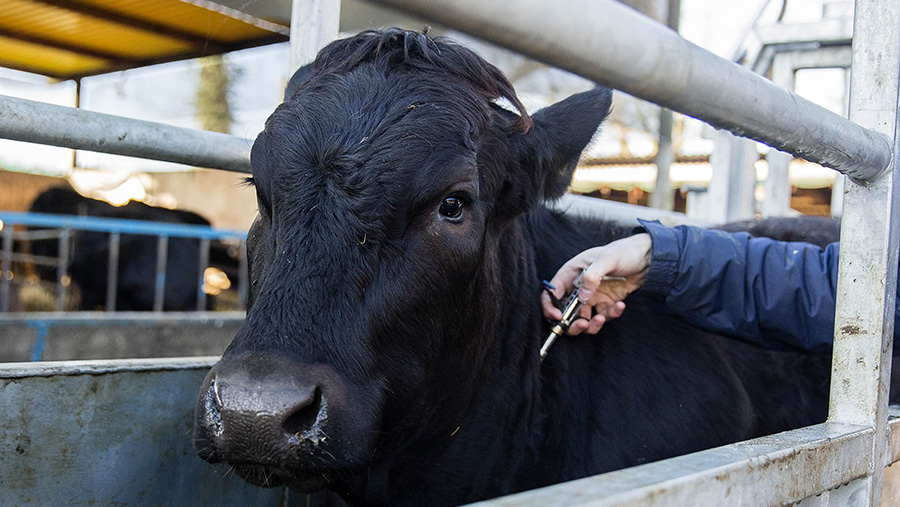TB-free farms offered option to pay for extra private tests
 © David Hartley/Rex/Shutterstock
© David Hartley/Rex/Shutterstock An additional bovine tuberculosis (bTB) private testing scheme has been introduced to provide peace of mind to unrestricted, officially TB-free farms in England.
The Animal and Plant Health Agency (APHA) has targeted the service at farms seeking “additional assurances” above statutory testing.
This is the latest initiative to deliver TB freedom across more than half the country by 2019 and starts at a cost of £16.25 (for 10 or more tests).
The scheme, started on Wednesday (6 April), can now be run through private veterinarians following APHA approval and offers two types of interferon-gamma (IFNG) blood tests.
- High specificity test: For officially TB free-herd cattle only – for movements, sales, inconclusive reactors and additional surveillance following negative routine skin testing.
- High sensitivity test: For cattle in TB-restricted herds that do not qualify for a government-funded IFNG test. Used for infected herds coming to end of restriction testing.
Testing costs |
|||
|
Test |
Single test |
Five or more tests |
10 or more tests |
|
High specificity test |
£30 |
£24.70 |
£22.30 |
|
High sensitivity test |
£22 |
£18 |
£16.25 |
Private tests will be carried out on Thursdays only, with APHA advising samples “must therefore be taken on a Wednesday and arrive at the laboratory by either 4pm on the day of sampling or by 9am on Thursday”.
Farmers are warned that positive reactors will be compulsory slaughtered with statutory compensation and official herd restrictions.
Low-risk animals may be rested at government discretion and expense.
|
Examples of cattle eligible for IFNG testing |
Not eligible for IFNG testing |
|
|
